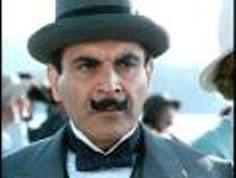
September 20, 2013, by Alan Sommerstein
Aeschylus’ ghost writer?
We are familiar today with the phenomenon whereby new novels are published in the style of, or as sequels to, the work of popular or classic authors, most recently in the case of Agatha Christie. This of course is done quite openly, and everybody knows that it’s not actually an undiscovered work of the great deceased. But not everyone in the past has been so scrupulous. And one man in classical Athens may have made quite an industry out of “discovering” hitherto unknown masterpieces by a dead literary icon.
This man was Euphorion, the elder son of Aeschylus and – like his brother Euaeon and his cousin Philocles – a dramatist in his own right, who won first prize in the tragic competition at the City Dionysia of 431 BC, defeating both Sophocles and Euripides (Euripides’ production, placed third and last, included no less a play than Medea). His entry in the Byzantine dictionary/encyclopedia known as the Suda reads as follows:
“Euphorion, son of Aeschylus the tragic poet, an Athenian, himself a tragic poet, who was also victorious four times with plays of his father Aeschylus which he [Aeschylus] had not previously presented. He also wrote plays of his own.”
Even if one assumes (quite credibly) that Euphorion won first prize every time he put on a production in his father’s name, it is stretching plausibility a bit to imagine that Aeschylus could have left enough material for four productions – that’s twelve tragedies and four satyr-dramas – complete (or nearly so) and unperformed at his death. He died in Sicily about three years after his last production in Athens (the Oresteia), and during his career of forty years or so he had completed on average about two plays a year. There must be some suspicion that Euphorion had written at least some of these plays himself and was working on the evidently justifiable assumption that they would win greater favour with the contest judges if Aeschylus’ name was attached to them – just as art forgers work on the assumption that if a painting is thought to be the work of one of the all-time greats, that is good for an extra zero or so on its auction price. Fifth-century Athenians were well aware that such forgery was possible, but they had no reliable methods for detecting it.
Now among the seven surviving plays attributed to Aeschylus there is one, Prometheus Bound, which for a variety of reasons (some stronger than others) has long been suspected of not actually being his work and of perhaps having been written twenty to thirty years after his death. And Martin West, in his book Studies in Aeschylus (Stuttgart, 1990) put these suspicions together with the Suda‘s evidence about Euphorion and suggested that Euphorion had presented Prometheus Bound (and its sequel Prometheus Unbound, of which only fragments survive) as a long-lost work of his father. Prometheus Unbound is parodied in a comedy, The Wealth-Gods by Cratinus, which on quite other grounds is generally dated to 429 BC, and it is therefore very tempting to suppose that the two Prometheus plays were part of Euphorion’s successful production of 431. In a later article (“Iliad and Aethiopis on the stage: Aeschylus and son”, Classical Quarterly 50 [2000] 338-352), West further suggested that two other fragmentary plays hitherto ascribed to Aeschylus, focusing on the death of two famous heroes in the Trojan War – Sarpedon killed by Patroclus (The Carians, or Europa) and Memnon killed by Achilles (The Weighing of Souls) – were also the work of Euphorion presented under his father’s name.
These suggestions remain controversial, and in particular the debate over the authenticity of the Prometheus plays shows no sign of ending. But it is at any rate evident that many Athenians in the decades following Aeschylus’ death badly wanted to believe that there was still more great drama hidden in his “desk drawer” waiting to be discovered and put on stage. As late as 425, we find the hero of Aristophanes’ comedy The Acharnians telling of how he was “agape in expectation of Aeschylus” and suffered what felt like acute physical pain (“tragic” pain, he calls it) when he learned that he was actually about to see a play (perhaps four plays) by the obscure Theognis. And twenty years later still, with both Athens and tragic drama in dire straits, the same author’s Frogs ends with Aeschylus himself, dead now for half a century, being brought back to earth to be the saviour of both. Euphorion was giving his public what they craved, and it paid off handsomely.
No comments yet, fill out a comment to be the first

Leave a Reply